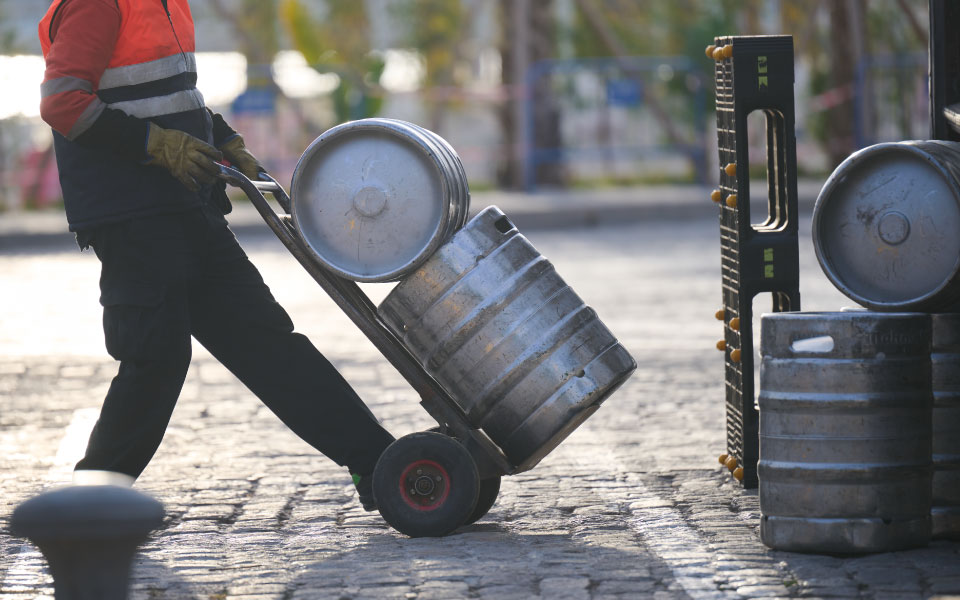The One Big Beautiful Bill Act (OBBBA), signed into law on July 4, 2025, substantially affects the food and beverage companies through the following provisions:
Extension and Expansion of TCJA Provisions
Individual Tax Rates
The bill makes the regular income tax rate schedules under section 1 permanent for individuals as enacted by the2017 Tax Cuts and Jobs Act (TCJA). Because these rates were scheduled to increase with the sunset of many TCJA provisions, this is a win for owners of food and beverage companies.
Corporate Tax Rates
The bill leaves the permanent decrease to the corporate tax rate enacted by the TCJA in place. This is generally beneficial for food and beverage companies operating as C corporations as it reduces their overall tax burden.
Qualified Business Income (QBI) Deduction
The OBBBA permanently extends and expands the QBI deduction for owners of pass-through entities. This allows eligible business owners to deduct a percentage of their qualified business income, providing significant tax savings for a large portion of the food and beverage industry.
Bonus Depreciation
The bill revives 100% bonus depreciation for property placed in service after Jan. 19, 2025, through 2029. This allows businesses to immediately expense a large portion of the cost of new equipment and property. For food and beverage companies that invest in new machinery, production lines, or facility upgrades, this can provide an immediate tax benefit by reducing their taxable income.
Qualified Production Property (QPP) Provisions
Qualified Production Property is a new class of non-residential real property introduced by the OBBBA, which is eligible for a special tax deduction. It is designed to incentivize the construction of and investment in U.S. manufacturing, production, and refining facilities. To qualify, the property must meet several criteria:
Integral to a Qualified Production Activity
The property must be used by the taxpayer as an integral part of a “qualified production activity.” This means the activity must result in a “substantial transformation” of tangible personal property.
Location
The property must be placed in service in the United States or a U.S. possession.
Original Use
The original use of the property must begin with the taxpayer claiming the deduction. There is a special rule that allows certain existing property to qualify if it was not used in a qualified production activity between Jan. 1, 2021, and May 12, 2025.
Construction and Service Dates
The construction of the property must begin after Jan. 19, 2025, and before Jan. 1, 2029. It must be placed in service before Jan. 1, 2031.
Exclusions
QPP specifically excludes portions of a property used for offices, administrative services, lodging, parking, sales activities, research, software development, or other functions not directly related to the manufacturing or production process. The deduction also does not apply to a lessor of the property, even if the lessee is a manufacturer. The food and beverage industry is generally excluded if the product is prepared and sold in the same building.
QPP Benefits Under OBBBA
The primary benefit of qualifying a property as QPP is a new, elective 100% depreciation deduction. This is a significant change, as non-residential real property is typically depreciated over a 39-year recovery period.
The benefits of the QPP deduction include:
Immediate Expensing
Businesses can deduct the entire cost of the qualified property in the year it is placed in service, providing a substantial and immediate tax reduction. This accelerates the tax benefits of a long-term investment, improving a company’s cash flow.
Incentive for Domestic Manufacturing
This provision is a powerful tool to encourage businesses to build new manufacturing facilities and supply chain infrastructure within the United States.
Interaction with Cost Segregation
Taxpayers who may build or expand in a hybrid capacity, for example, a portion would constitute QPP while another portion of the real property build would not qualify, should consider a cost segregation study to maximize their tax benefits on the non-qualifying portion. A cost segregation study breaks down a building’s components into different classes with shorter depreciable lives. With QPP, a business can apply the 100% depreciation to the QPP components and then use cost segregation on the remaining building elements to accelerate their depreciation as well.
Research and Experimental (R&E) Tax Credit
A major change for the industry is the enhanced R&E tax credit. The bill allows companies to immediately deduct qualified R&E expenses, such as those related to developing new flavors, improving shelf stability, or creating new products. This reversal of a previous rule, which required these expenses to be amortized over five years for domestic R&E, had been a significant financial barrier for many businesses.
Estate Tax Exemption
The bill increases the estate tax exemption permanently to $15 million starting in 2026. While primarily impacting individuals, this could benefit family-owned food and beverage businesses by reducing the estate tax burden when ownership is transferred.
Elimination of Tax on Tips and Overtime
- The OBBBA creates new IRC section 224 that allows a deduction for qualified tip income through 2028.
- For food and beverage companies, especially those in the restaurant and hospitality sectors where tipping is customary, this can have significant implications for employee compensation and reporting. While tips would still be subject to FICA (payroll) taxes, the income tax deduction for employees could affect their after-tax pay and potentially influence their compensation expectations. Employees may want to consider changing their withholding amounts due to the new deduction.
- As a result, affected companies may need to assess record maintenance to be able to determine what would constitute qualified tip income. For example, a service fee charged by a restaurant would not qualify because it is not a voluntary payment by a customer.
- The bill also extends the employer tax credit for FICA taxes paid on tips, currently applicable only to food or beverage service employees, to include tips in beauty services. This is a direct benefit to food and beverage employers by offsetting their FICA tax liability on tipped wages.
- The amount is determined from the qualified tips that an individual receives during a taxable year and is reported on Form W-2s, 1099-K, or 1099-NECs, or reported by the taxpayer on Form 4317 (or successor).
Changes to Clean Energy Incentives
The bill accelerates the phaseout of most clean energy business tax incentives and terminates most energy credits for individuals that were enacted in recent years (e.g., through the Inflation Reduction Act). For food and beverage companies that have invested in or planned to invest in energy-efficient equipment or renewable energy sources, this could reduce potential tax credits and increase operating costs related to energy.
SNAP (Supplemental Nutrition Assistance Program) Cuts
The bill significantly cuts spending on SNAP through stricter eligibility requirements and shifts more of the program’s costs onto states. While not a direct tax on food and beverage companies, changes to SNAP could impact consumer purchasing power, potentially affecting demand for certain food products, especially those consumed by lower-income households.
State and Local Tax (SALT) Deduction Cap
The bill increases the state and local tax (SALT) deduction cap from $10,000 to $40,000 for married couples filing jointly and single taxpayers with adjusted gross incomes up to $500,000, subject to a phase-out rule. For married individuals filing separate returns, the SALT Cap is $20,000, and the phase-out starts at $250,000. While this primarily impacts individual taxpayers, business owners who pay significant state and local taxes on their pass-through income could see a benefit.
Conclusion
It’s important to note that the OBBBA is reshaping tax strategies throughout the industry. Food and beverage companies should closely review its provisions and consult with CBIZ tax professionals to understand the specific implications for their operations. Please contact us for more information.
© Copyright CBIZ, Inc. All rights reserved. Use of the material contained herein without the express written consent of the firms is prohibited by law. This publication is distributed with the understanding that CBIZ is not rendering legal, accounting or other professional advice. The reader is advised to contact a tax professional prior to taking any action based upon this information. CBIZ assumes no liability whatsoever in connection with the use of this information and assumes no obligation to inform the reader of any changes in tax laws or other factors that could affect the information contained herein. Material contained in this publication is informational and promotional in nature and not intended to be specific financial, tax or consulting advice. Readers are advised to seek professional consultation regarding circumstances affecting their organization.
“CBIZ” is the brand name under which CBIZ CPAs P.C. and CBIZ, Inc. and its subsidiaries, including CBIZ Advisors, LLC, provide professional services. CBIZ CPAs P.C. and CBIZ, Inc. (and its subsidiaries) practice as an alternative practice structure in accordance with the AICPA Code of Professional Conduct and applicable law, regulations, and professional standards. CBIZ CPAs P.C. is a licensed independent CPA firm that provides attest services to its clients. CBIZ, Inc. and its subsidiary entities provide tax, advisory, and consulting services to their clients. CBIZ, Inc. and its subsidiary entities are not licensed CPA firms and, therefore, cannot provide attest services.















